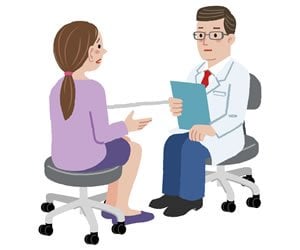Junior doctors [and residents in the US] do a valuable and sometimes life-saving job for patients. They are the future in medicine and can bring enthusiasm and fresh ideas into the profession. Despite the importance of their role to society, junior doctors have sky rocketing stress levels and many have an appalling state of mental health.
The Shocking Suicide Rate Among Doctors
It is totally shocking that in the 21st century, so many bright young doctors fall prey to depression and around 400 US physicians intentionally end their own lives annually. This means that every year in America, a million patients lose their doctor to suicide. The chance of dying by suicide is greatly increased for those in the medical profession compared with ‘lay’ people. For instance, male doctors have a 70% increased risk of dying as a result of suicide, when comparing the death rates with men from the general population. One of the reasons there are more completed suicides – ironically – may be as a result of doctor training. Doctors know the human body intimately. They know about drug dosages, they know more about the effects of drugs on the body. They know how to save a life and because of this, how to take one. A determined doctor can calculate a fatal drug dose expertly or know where to cut that would be catastrophic. They also have access to powerful, death dealing drugs that are only available on prescription to the rest of the population. This may be why there are so many successful doctor suicides each year.
students
A Guide to a Successful Gap Year
It wasn’t so very long ago that the typical medical student went straight from high school to a premedical program and then onto medical schools itself. This traditional pathway, however, is not so traditional anymore. The question of a gap year is one which comes up more and more frequently nowadays–and it is also one which can cause aspiring medical students a lot of anxiety as they make the decision about whether to take time off from academia when the undergraduate work is finished.
This article covers different aspects of the gap year, including the reasons why students take it, the fact that is it actually becoming more popular among pre-med students and different opportunities that students can take advantage of during this year off.
How to Use Simple Tricks to Improve Your Grades
Coming Prepared Everyone has a point in their lives where this happens, whether it’s high … Read more
What You Should Know: Talking to Parents about their Obese Children
According to the Center for Disease Control, childhood obesity is reaching what some are calling … Read more
The One Letter to Rule Them All
As an undergrad, one of the reasons you devoted so much time to a research experience was to earn an epic letter of recommendation–one that speaks to your strengths, resilience, character, self-reliance, cultural competencies, ability to solve problems, and contribute to a group effort. This letter will be a comprehensive endorsement of your medical school application complete with specific examples that influenced your PI’s opinion. This one letter has the potential to outweigh all other letters from a professor whose class you attended, or from someone who oversaw a volunteer program you participated in for a semester.
Love and Happiness… And Medicine? Our Experience in the Couples Match
We were in the same class in medical school. It was your typical story. Boy meets girl, girl doesn’t like boy’s buzz cut, they waste a year, eventually end up as anatomy TAs working on the same dissection together, and fall in love. Standard. I knew that I was going to be a surgeon, he was thinking about ER. We moved in together. We talked about getting married. Then he went out for third year rotations and I started the Anatomy Fellowship at our school. He did Surgery mid-way through the year. To my concern, though not to my surprise, he loved it. He loved it the way I loved it. We talked seriously about what this would mean for us, both for our relationship and for our careers. We had always assumed that when the Match rolled around that we would participate in the Couples Match. Couples matching into Surgery seemed like a long shot, but we both knew we couldn’t be satisfied in another field, that we were surgeons at heart. So we decided we had to try.
The Unmatched Student’s Guide to Successfully Dealing with Failure
I was in the middle of a fairly busy day on the palliative care ward, … Read more
What You Should Know: Talking to Your Patients About Their Mental Health
Even student doctors who have not yet completed all of their medical training have probably realized that awkward, difficult or delicate conversations are part and parcel of a physician’s practice, and for a number of different reasons. Few conversations you will likely to have with your patients can feel more uncomfortable–for patient and doctor both–than those involving a patient’s mental health. Despite energetic advocacy for the mentally ill in recent decades, the stigma of mental illness remains and many patients may feel embarrassed, upset, or ashamed to discuss these issues with their healthcare providers. A doctor who is comfortable with this topic and can put their patient as ease, however, can more easily screen patients for mental health disorders and, more importantly, get them referrals and contact with community resources that many of them so desperately need.
But how do you start this conversation?
Time to Start Thinking About Your Medical School Application
If you are planning to start medical school for the 2017 Fall Semester, it’s already time to start thinking about your application!
You will apply using the American Medical College Application Service® (AMCAS®) for your medical school applications – the 2017 application cycle opens in early May. AMCAS is the primary application method used by most US medical schools. For you, this means that you’ll submit only one online application, regardless of the number of medical schools you choose to apply to.
We’ve highlighted tips and resources to help you begin to prepare for completing your application whether you are applying for this upcoming cycle or sometime down the road.
5 Soft Skills Every Pre-Med Student Needs
Though the emphasis of the medical school application process lies on academic achievement, there are a number of personal qualities that pre-medical students should strive to develop if they wish to become superior physicians. The development of these soft skills may also make students more competitive medical school applicants when they are evident in interviews and letters of recommendation. Such soft skills include:
1. The ability to work effectively in a team
Modern medicine requires immense coordination between various clinicians and providers. Doctors must collaborate with nurses, social workers, specialists, therapists, and others in order to adequately care for their patients in today’s complex medical and social climate. The ability to lead and to collaborate with team members is a necessity for today’s medical trainees. Pre-medical students can develop this skill while working in a team setting in their college coursework (e.g. group projects and presentations), extracurricular activities (e.g. student government and student interest groups), and other major experiences (e.g. philanthropic organizations and research laboratories). Students should actively strive to lead, but they should also work to see the perspectives of all team members, and to incorporate effective strategies to help their team meet common goals.
A Compilation of Essential SDN Wisdom – Updated for 2022
Originally posted in 2016, this article was adapted from an SDN forums thread provides quick … Read more
How To Overcome Adversity in Professional School
After coming home from a long day at the library studying for my cardiology exam, I get a phone call from my sister. “Hey,” she said. “Grandmother is in the hospital. Can you come home this weekend?” Great, I thought. Not this again.
I was barely beginning to cope with the loss of my dad over eight years ago, and barely staying afloat in medical school because of it. I had failed my first medical course, anatomy, during my first year and just spent a tough summer trying to remediate it, as my other friends went off traveling or spending time at home with their families. Now, my grandmother was a piece of my childhood that I was about to lose and I had no idea how to prepare for it.
Top Tips for Sub-Internship Success
The sub-internship is a crucial rotation for all medical students, no matter which specialty they plan to pursue. During this transitional phase in their clinical training, students begin to assume more independent responsibility for patient care. A sub-internship introduces students to life as residents, and it is often a source of recommendation letters for the residency application process. Below are my top tips for success during your sub-internship.
Study Smarter, Not Harder
Occasionally when I am browsing the online forums on SDN, I come across an unfortunate statement like this: “I studied so hard for my chemistry final and did horrible.” I’ve come across this problem for classes other than chemistry as well. A lot of people say they studied hard, but did they really? Until I really understood the other principles of studying, I didn’t realize that there is a lot more than just the act itself.
Some of the variables I’ve been able to come up with that impact studying are sometimes things we don’t analyze. A couple examples are sleep patterns, intrinsic motivation, breaks, contacting your professor, repetitive intervals, studying like it’s your job, remembering the ultimate goal and of course having fun when your not studying. I personally have to constantly remind myself to remain vigilant of everything I do and how it will impact my studying. Just remember that every test counts, so make the best possible outcome for yourself by following some of these tips.
The Right Time to Lose a Patient
Republished with permission from here. Although there is really never a right time to die … Read more
What You Should Know: Lies in the Patient-Doctor Relationship
What You Should Know is an ongoing series covering a range of informational topics relevant to current and future healthcare professionals.
It happens to every medical student sooner or later – the realization that their patient has lied to them. Especially for students, who are just beginning to gain clinical experience, this realization can come as a shock. A sense of betrayal, anger or even the desire for retribution can set in, all of which can be damaging to the doctor-patient relationship.
These emotions aside, it might help student doctors dealing with the nature of this reality to understand where deception enters into the therapeutic relationship – as well as how and why people lie in a clinical setting and what the doctor can do about it.
Why Some Labs Don’t Train Premed Students and Why You Shouldn’t Care
So far, the vast majority of the undergrads I’ve trained during my research career have been premed students. With the numerous personal and professional advantages an in-depth research experience can provide, and how a successful research experience can support a medical school application, that is unlikely to change.
Most students prove to be an asset to my research team. They are motivated, dedicated, step up to extra responsibility without hesitation, and are helpful to their labmates. These are the undergrads who arrive at lab ready to work, ready to contribute, and ready to learn everything anyone is willing to teach them. These undergrads find the self-discipline to push through disappointment at the research bench, and like to be challenged—whether through learning a new technique, designing an experimental strategy, or interpreting data. They serve as ambassadors for their research and university at scientific meetings, present their projects at symposia, and occasionally, if all the stars align, earn coauthorship on a publication.
What You Should Know: The Pros and Cons of Medical Marijuana
What You Should Know is an ongoing series covering a range of informational topics relevant to current and future healthcare professionals.
The numbers alone make it a significant issue: as of 2015, 23 states and the District of Columbia have legalized the use of medical marijuana – and 9 more states are currently working on legislation to do the same. Two more states – Washington and Colorado – have gone so far as to legalize its recreational use. It is likely, therefore, that medical students today will feel the effects of medical marijuana use when they go into practice for themselves.
Medical – and recreational – marijuana use is a complex issue with medical, political, and social implications. Below are evidence-based arguments for and against this use to give student doctors the opportunity to understand the finer points of this controversy.
Chronicles of a Med Student: Making Every Moment Count
I was ringing in the New Year with a friend when suddenly it hit me that it was 2016. I still feel like 2015 is in the future and it’s already 2016. I’m not getting any younger, but more importantly, how fast am I getting older? My birthday is close to New Year’s, so my biological clock is really in sync with the calendar year. Now that I’m in medical school, time flies faster than ever. It’s important for me to keep track of what I’m doing and to make sure I savor every moment. In order to do this, I want to make sure I make every day count by doing something useful so when I look back, I know I’ve spent my time wisely even while in school. I decided to take a quick look back at my last year to reflect on my highlights!
How to Prepare Answers to These Tricky Medical School Interview Questions
While medical school interviews can be quite conversational, thinking in advance about the questions you will face can help you articulate your unique story more effectively. Most interviews revolve around the interviewer getting to know you better, but there will likely be a number of questions that give the ill-prepared applicant pause. Below are several strategies to help you prepare answers to these tricky questions:
“Why do you want to study medicine?”
This question will be asked at almost every medical school interview that you attend, but it can be difficult to answer unless you have reflected on your goals ahead of time. Clearly explaining why you wish to become a physician—without being cliché—is paramount to distinguishing yourself. To prepare for this question, review your personal statement for inspiration. Aim to incorporate details that are not mentioned in your personal statement, but that are related to experiences or endeavors that you have described in your essay or in the remainder of your application. This can add depth to your admissions portfolio outside of what you have already explained on paper. In addition, truly attempt to define the type of medical career that you want (i.e. community medical practice, medical education, research, etc.). Weave in your career aspirations when you answer this question to connect your pursuit of medical school to your ultimate goals.




















